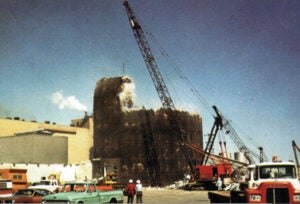On Tuesday, the Federal Energy Regulatory Commission (FERC) issued an order in which it said it found insufficient consensus on smart grid interoperability standards to require it to institute a rulemaking procedure. It urged industry participants to continue working with the National Institute of Standards and Technology (NIST) to develop such standards.
The Energy Independence and Security Act of 2007 (EISA) calls for U.S. grid modernization, collectively called “smart grid,” and directs NIST to coordinate the development of a framework to achieve interoperability of smart grid devices and systems.
The summary of yesterday’s FERC order reads: “Section 1305(d) of the Energy Independence and Security Act of 2007 directs the Commission to institute a rulemaking proceeding to adopt such standards and protocols as may be necessary to insure smart-grid functionality and interoperability in interstate transmission of electric power, and regional and wholesale electricity markets once it is satisfied that the work of the National Institute of Standards and Technology has led to ‘sufficient consensus’ on smart grid interoperability standards. The Commission finds that there is insufficient consensus for the five families of standards under consideration. For this reason, the Commission will not institute a rulemaking proceeding at this time with respect to these standards and terminates this docket. In this order, the Commission encourages stakeholders to actively participate in the NIST interoperability framework process to work on the development of interoperability standards and to refer to that process for guidance on smart grid standards.”
The order has raised questions about the meaning of the phrase “sufficient consensus.” The order itself sheds some light on that issue without suggesting how to resolve it: “For example, some commenters urge the Commission to take a stronger role in the standards process, while others suggest that the Commission defer to NIST. Relying on the language in EISA section 1305(d), several commenters believe that it may not be ‘necessary’ to adopt any standards. Additionally, some commenters call on the Commission to provide guidance with respect to smart grid interoperability standards and the standards development process. Several commenters request that the Commission define relevant terms such as interoperability, or establish goals and objectives, set functional priorities, or provide guidance on cyber security for the electric power system.”
The FERC order notes that “Commenters are nearly unanimous that we should not adopt these standards at this time, citing concerns with cyber security deficiencies and potential unintended consequences from premature adoption of individual standards. The Commission agrees with commenters’ concerns, observant that certain aspects of the current NIST process were not in place during development of the NIST Framework document and identification of the IEC standards.”
Instead, FERC bumped the whole issue back to NIST, saying that “the best vehicle for developing smart grid interoperability standards is the NIST interoperability framework process, including the work of the SGIP and its committees and working groups.”
In October last year, NIST
notified FERC that it had identified five families of standards as ready for consideration by regulators. Technical conferences followed. In January, the Government Accountability Office reported that the standards were incomplete and unenforceable, and in April, NIST provided a response to comments about the standards received by FERC. One point of contention at that time was the perceived level of utility involvement in the standards process. NIST noted in its April letter that, of the 555 organizations participating in the process, about 95 were utilities and that participation in the process is open to all.
Sources: NIST, FERC, POWERnews







